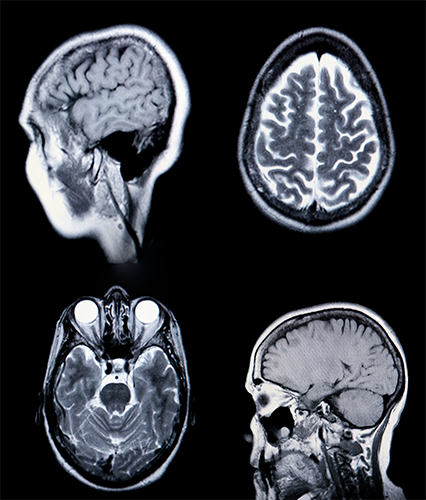
Our Neuroradiology Fellowship program is a one-year advanced training opportunity for radiologists seeking to specialize in the imaging of the central and peripheral nervous systems. Fellows gain expertise in the interpretation of advanced neuroimaging modalities, while working in a multidisciplinary environment. The fellowship is ACGME-accredited and leads to a subspecialty certification in neuroradiology.
Clinical Training
Neuroradiology fellows are based at Banner - University Medical Center Tucson where they primarily interpret CT and MRI studies of the brain, face, neck, and spine. The CT portfolio includes CT perfusion, CT angiography, and three-dimensional CT imaging. MRI studies encompass a wide array of advanced protocols, including MR perfusion (using dynamic susceptibility contrast (DSC) and dynamic contrast-enhanced (DCE) techniques), MR angiography, MR spectroscopy, and diffusion tensor imaging (DTI). All neuroradiologic imaging, including studies for both adult and pediatric patients, is performed by the Neuroradiology team.
In addition, the caseload includes several spinal procedures each week, which are distributed between residents and fellows. These procedures encompass a variety of interventions, including biopsies, lumbar punctures, myelograms, sacroiliac joint injections, and epidural injections. Fellows also have the opportunity to participate in advanced diagnostic neuroangiography as well as endovascular neurosurgery procedures.
Academic and Research Opportunities
Fellows are eligible for up to three (3) weeks of academic time off to pursue research or educational projects, subject to approval by the departmental Clinical Competency Committee. Historically, Neuroradiology Fellows at the University of Arizona have made significant use of this time, resulting in journal publications, book chapters, and presentations at national conferences. Additionally, when presentations are accepted at national meetings, departmental funding is often available to support travel and related expenses.
Teaching and Mentorship
The program offers a series of exclusive lectures for fellows, held two to three times a month. In addition, fellows actively participate in a wide range of interdisciplinary conferences and tumor boards, providing a critical learning opportunity for managing complex cases. Our department is engaged in the following multidisciplinary collaborations:
- Neuro-oncology Tumor Board
- ENT Tumor Board
- Pediatric Tumor Board
- Stroke Conference
We offer a fellows’ journal club that fosters critical thinking, academic rigor, and professional development. Additionally, a variety of College of Medicine - Tucson Grand Rounds hosted by Medical Imaging, Neurology and Neurosurgery add to the educational experience.
Program Resources
Fellows and residents have access to a wide range of health sciences information resources through the Health Sciences Library. Access to countless full-text journals is available the University of Arizona Health Sciences campus library catalog. This comprehensive resource also provides comfortable space for small group collaborations and quiet studying in a collegial atmosphere.
The program also incorporates evidence-based medicine tools including EBM search, a search engine that provides access to evidence-based medicine, the Cochrane Library, ACP Pier, BMJ Clinical Evidence, and Clinical Practice Guidelines. Additionally, fellows have access to STATRef, the premier healthcare e-resource.
All neuroradiology fellowship applications must be submitted via ERAS. This program participates in the NRMP Match.
Application Requirements
- ERAS application
- Curriculum Vitae formatted to include month/year for all educational and employment periods; please address any gaps in time.
- Personal Statement
- Photo
- Medical School Transcripts
- Medical Student Performance Evaluation (MSPE)
- Three current letters of recommendation (LOR), dated no more than 12 months prior to the application date. Each letter should be on official letterhead and signed by the reference giver.
- Pass on The United States Medical Licensing Examination (USMLE) Step 1, Step 2 and Step 3
- ECFMG certificate (for IMG)


